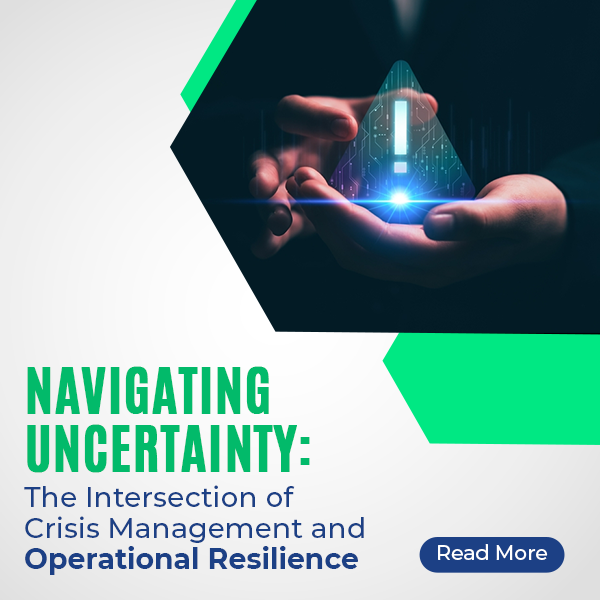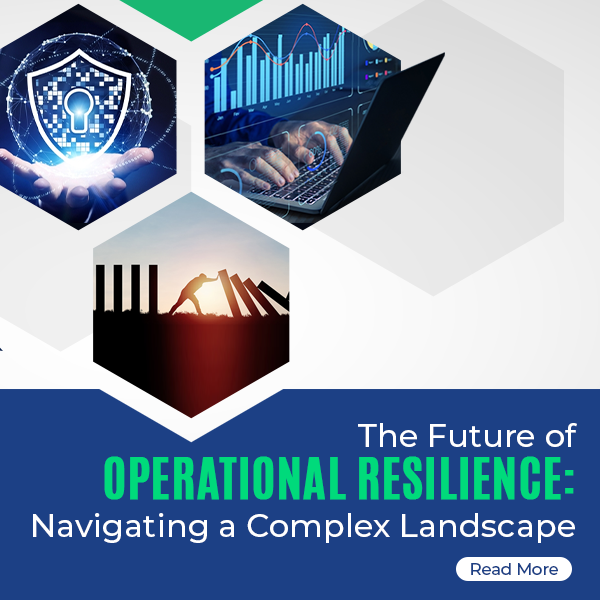Successful companies are characterised by their capacity to withstand adversity and come out stronger in the fast-paced commercial world of today. True preparedness lies at the crossroads of operational resilience and crisis management, although these two notions are frequently considered separate entities. We’ll look at how operational resilience and crisis management interact to provide a strong foundation for handling uncertainty in this blog article.
Understanding Crisis Management
Strategic planning and reaction to unanticipated occurrences that could interfere with regular corporate operations are part of crisis management. These occurrences can include anything from cyberattacks and natural disasters to public relations meltdowns and economic downturns. Among crisis management’s main objectives are:
1. Quick Response: To ensure swift decision-making, organizations must quickly identify and assess the crisis.
2. Effective Communication: To preserve confidence and communicate with stakeholders in a timely and transparent manner.
3. Resource Allocation: The effective use of resources to lessen the crises’ effects
The Role of Operational Resilience
On the other hand, operational resilience refers to an organisation’s overall capacity to foresee, plan for, respond to, and recover from disturbances. It encompasses an all-encompassing approach to organisational readiness that goes beyond operational management. Among the essential elements of operational resilience are:
1 Risk Identification and Assessment: Early detection of possible dangers and weak points
2 Flexibility and adaptability: the ability to modify activities in reaction to evolving conditions
3 Redundancy and Contingency Planning: Creating strong backup plans and adding redundancy to vital systems
The Convergence: Where Crisis Management Meets Operational Resilience
1. Getting Prepared as a Foundation
Operational resilience forms the foundation for effective crisis management. Organizations that possess a well-defined framework that delineates dangers and suggests remedies are more capable of handling unforeseen obstacles.
2. Constantly Gaining Knowledge from Disasters
There is always room for growth and learning during a crisis. Operational resilience entails analysing the incident after it has happened to determine what went well and what needs to be improved in management plans.
3. Making Agile Decisions
Operational resilience emphasizes the importance of making decisions quickly. Flexibility is crucial to crisis management as it empowers companies to respond swiftly to new circumstances.
4. Employee Engagement and Training
The human element is central to both crisis management and operational resilience. Employee engagement and training programs contribute to a workforce that is not only capable of executing crisis response plans but also actively participates in maintaining operational resilience.
Key takeaway
The combination of operational resilience and crisis management offers a road map for organisational survival and expansion in a time of unpredictability and continual change. Businesses may create a foundation that not only withstands crises but also drives them ahead in the face of uncertainty by considering these ideas as complementary rather than distinct.
Recall that the question is not if a crisis will happen, but rather when. An organization’s capacity to not only weather a catastrophe but also prosper in its aftermath depends on how successfully it has integrated operational resilience and crisis management.
Our resilience management platform, “AutoResilience“, is industry-leading and has four modules for risk, crisis, business continuity, and cyber resilience. Recognized by analysts like Gartner and Forrester, we’ve helped numerous banks globally reduce the impact of disruptions, ensure regulatory compliance, and safeguard reputation.













